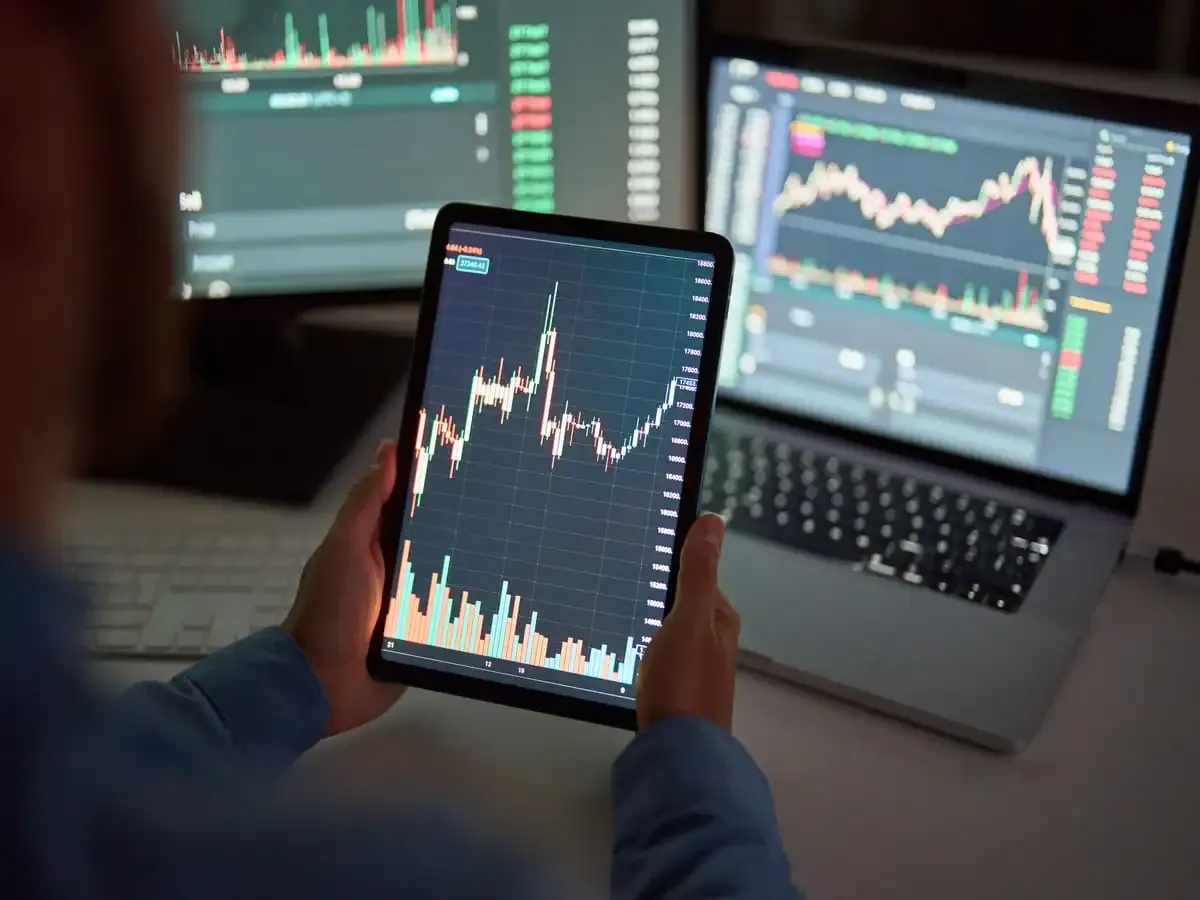Online Trading of Stocks/Shares for Beginners in India - Meaning, What It is, & How to Do
Written by Upstox Desk
Published on October 17, 2025 | 5 min read

Online trading is a fairly popular method of transacting in financial products online. Brokers have gone online, with their platforms providing all kinds of financial instruments like stocks, commodities, bonds, ETFS, and futures.
- Traditionally, when a buyer wanted to invest money in stocks, he used to call his brokerage firm and asked for putting in a request to buy stocks of a given company for a specified amount.
- The broker would then let him know the market price of the stocks and would confirm the order.
- After the user confirmed his trading account, the broker's fees and the time period required for the order, the order would get placed on the stock exchange.
Key Points
- When a user places the order for buying any particular stock on an online platform, his order gets saved in the database of the trading member platform and the exchange platform.
- If the price matches with the user’s demands and he confirms the order, then the process is validated by both the parties.
- Online platforms provide a far more inexpensive experience, which attracts a majority of traders and investors.
As is obvious, this method had multiple steps and was pretty long drawn. Not surprisingly, online trading platforms have taken over the entire trading landscape because of their advantages:
- The users can open, manage and close accounts sitting at their homes, working on a device with internet.
- Transactions can be made much more easily.
- Multiple financial products, which earlier needed to be bought from specific places or banks, can now be bought and sold online, which also reduces the the role of an intermediary and saves time.
- The money used is real and the user gets to analyse and choose from the various options of stocks and products available.
How Does Online Trading Work?
When a user places the order for buying any particular stock on an online platform, his order gets saved in the database of the trading member platform and the exchange platform. This data is then used to look across all platforms selling that particular stock and display the result with the best price available. If the price matches with the user’s demands and he confirms the order, then the process is validated by both the parties. After all that is completed, the broker usually has three days to complete the settlement of the money, and hence, the money is transferred to your account.
Many online trading platforms provide analysis of stocks, which helps the users to find the status of the stock market. This also helps them predict the situation of stocks in upcoming days and shape their decisions. Online platforms attract users through ease of use and reduced commission fees. Ultimately, having a properly funded account is essential to execute trades smoothly on a platform.

Offline vs Online Trading
As online trading increasingly widens its roots into the modern trading market, retail trading finds its place in local stock exchanges and offices. The impact of online trading over offline has been noticeable with the evolution of computers and internet, in the past two decades. Online trading does provide a lot of advantages which are difficult to achieve offline.
The cost of the stocks and various financial products has reduced significantly. Online platforms provide a far more inexpensive experience, which attracts a majority of traders and investors. This has become possible because online trading eliminates the majority of the middlemen, which in turn, decreases the extra added price of commissions over these products.
Online trading is much faster as compared to offline trading. It is also easier to find the price of securities when the information is flowing electronically. Receiving updates regarding price changes in the form of price alerts, makes it easy to transact shares. Thus, reducing the processing time. It also enables buying products from any location in the world. Hence, it is not necessary to go to a definite place to trade.
As online trading platforms are surplus in number, the competition between them results in a benefit for the trader or investor. These platforms, for better marketing and gaining greater users, release offers and discounts which enables the users to buy products at lesser prices or sell them at higher prices, ultimately, benefitting the users. This happens, but rarely in offline trading.
Wrapping Up
- Online trading is electronic trading with the help of internet and computers.
- The user can search for stocks available on different exchanges, decide on the broker who offers the best price and an intuitive trading experience.
- You can choose a trading platform and start placing various types of share trading orders.
- The order for stocks is stored in a database which after verification from the buyer and the seller, is proceeded for the transaction of money.
- These platforms provide various offers for marketing and gaining users, eventually benefitting the users a lot which seldom happens in offline trading.
- Reduction of cost of products, reduced role of intermediaries, increased competition among brokers, etc. are some of the major impacts of online trading.
About Author
Upstox Desk
Upstox Desk
Team of expert writers dedicated to providing insightful and comprehensive coverage on stock markets, economic trends, commodities, business developments, and personal finance. With a passion for delivering valuable information, the team strives to keep readers informed about the latest trends and developments in the financial world.
Read more from UpstoxUpstox is a leading Indian financial services company that offers online trading and investment services in stocks, commodities, currencies, mutual funds, and more. Founded in 2009 and headquartered in Mumbai, Upstox is backed by prominent investors including Ratan Tata, Tiger Global, and Kalaari Capital. It operates under RKSV Securities and is registered with SEBI, NSE, BSE, and other regulatory bodies, ensuring secure and compliant trading experiences.
























